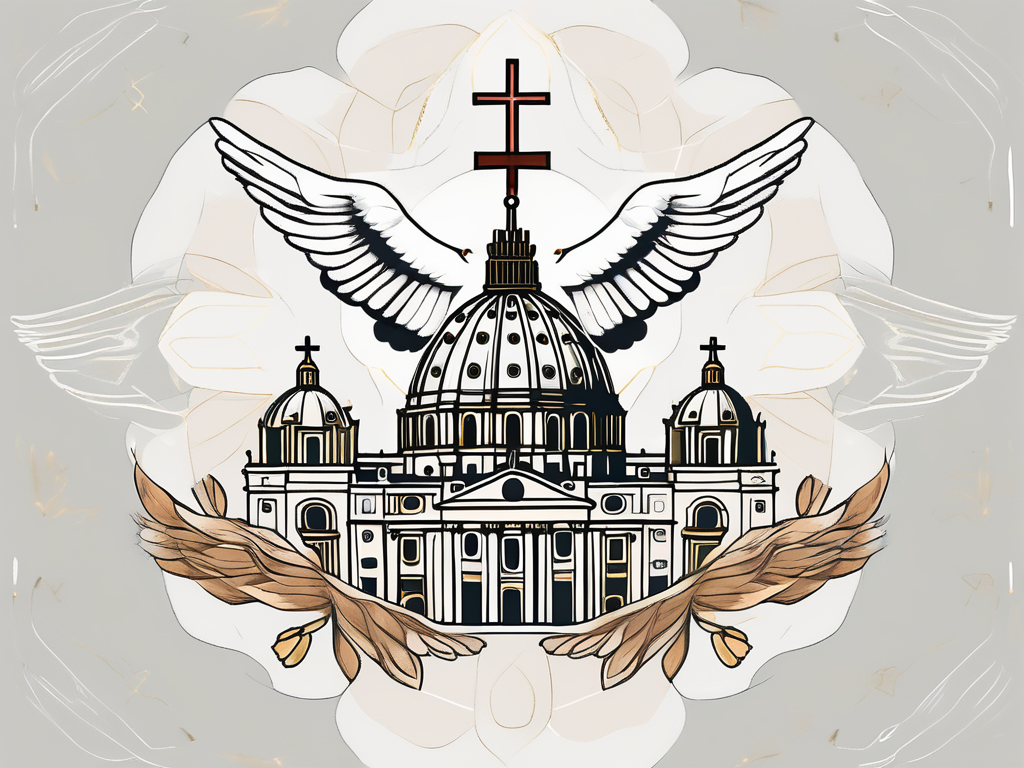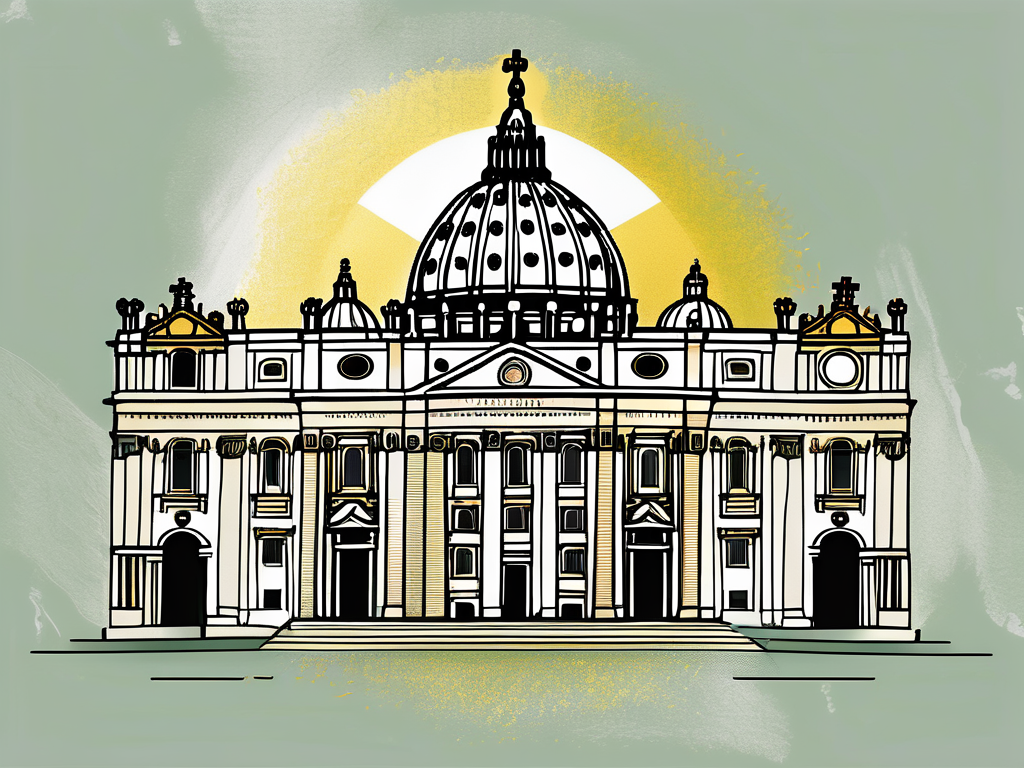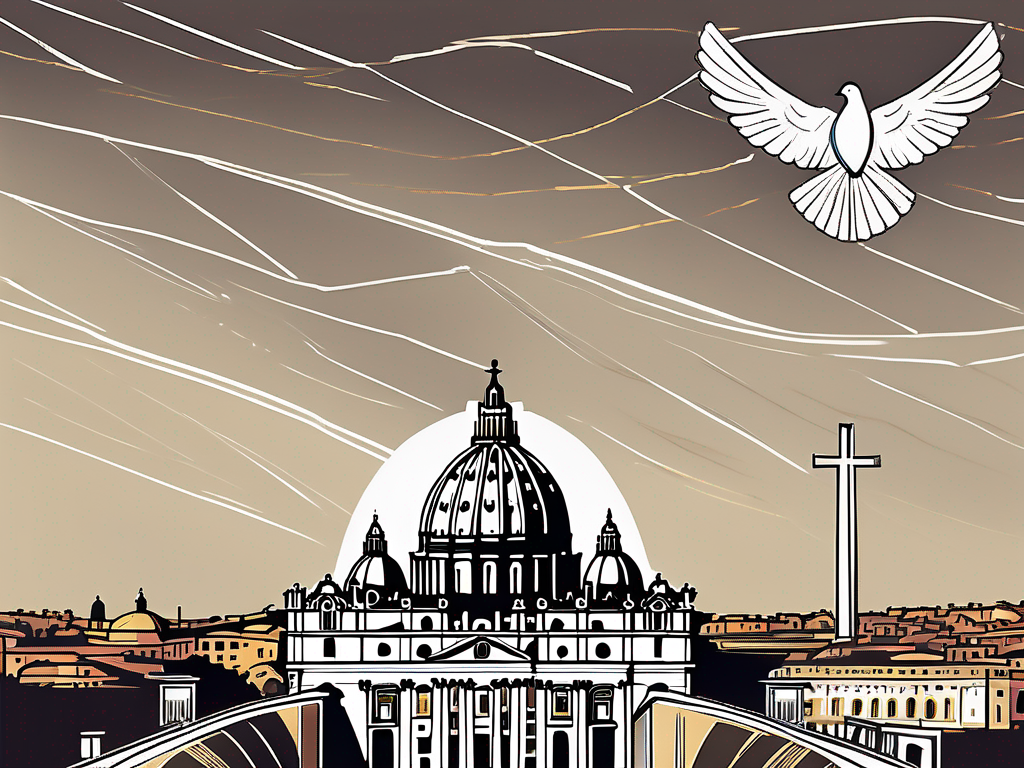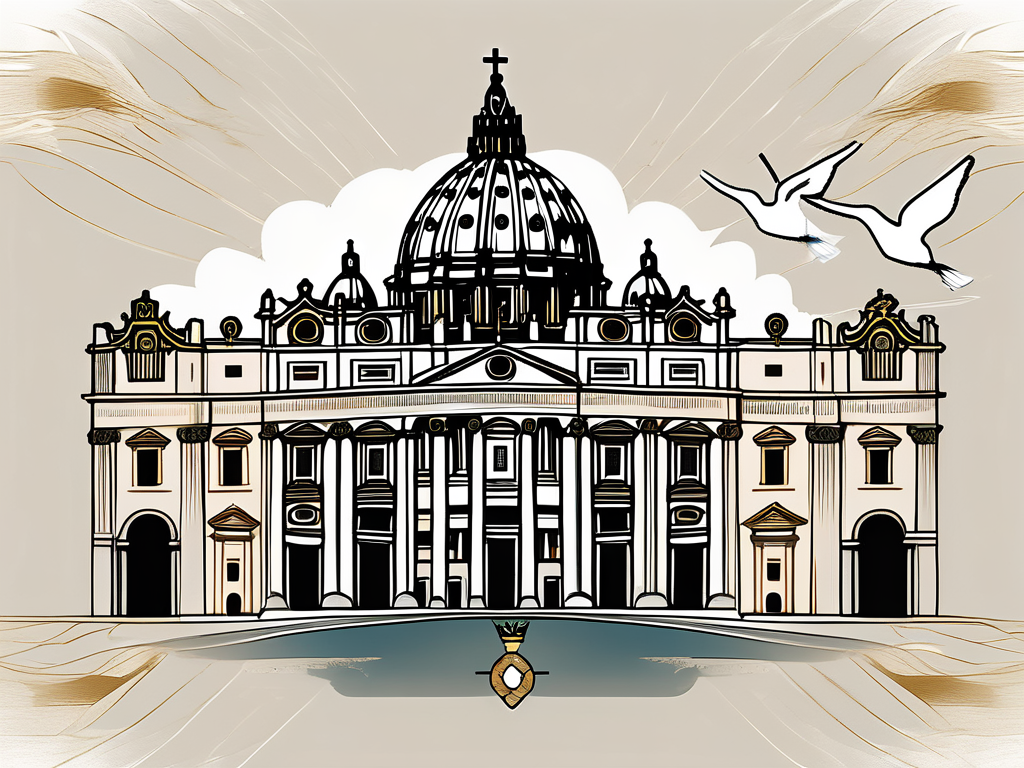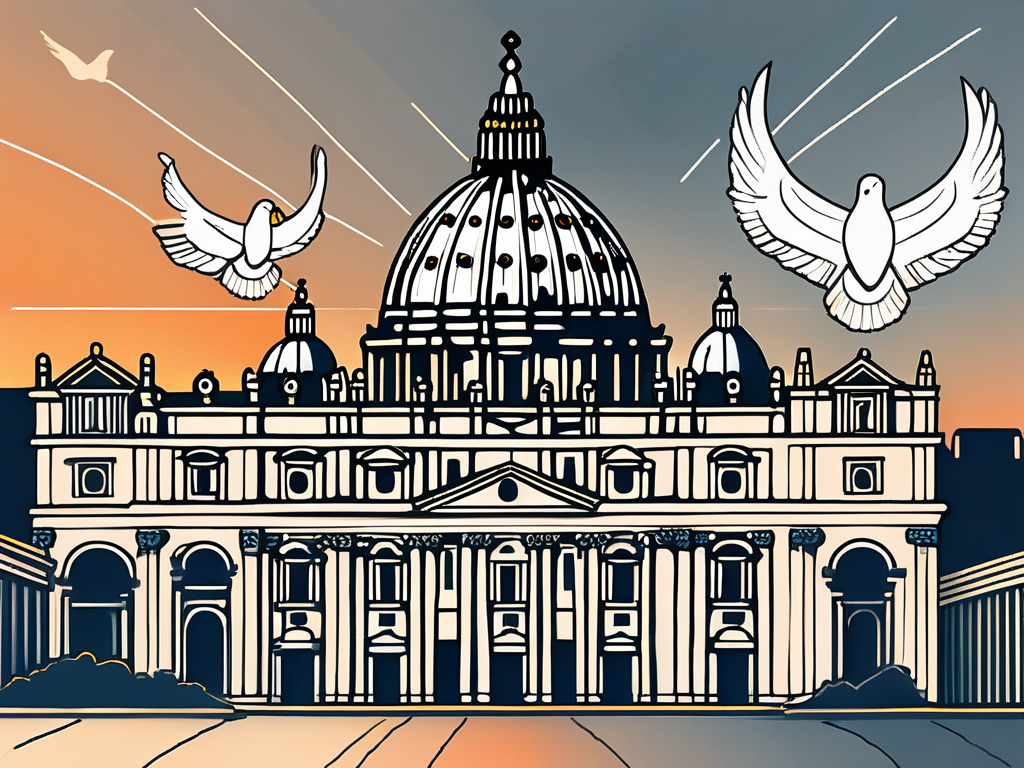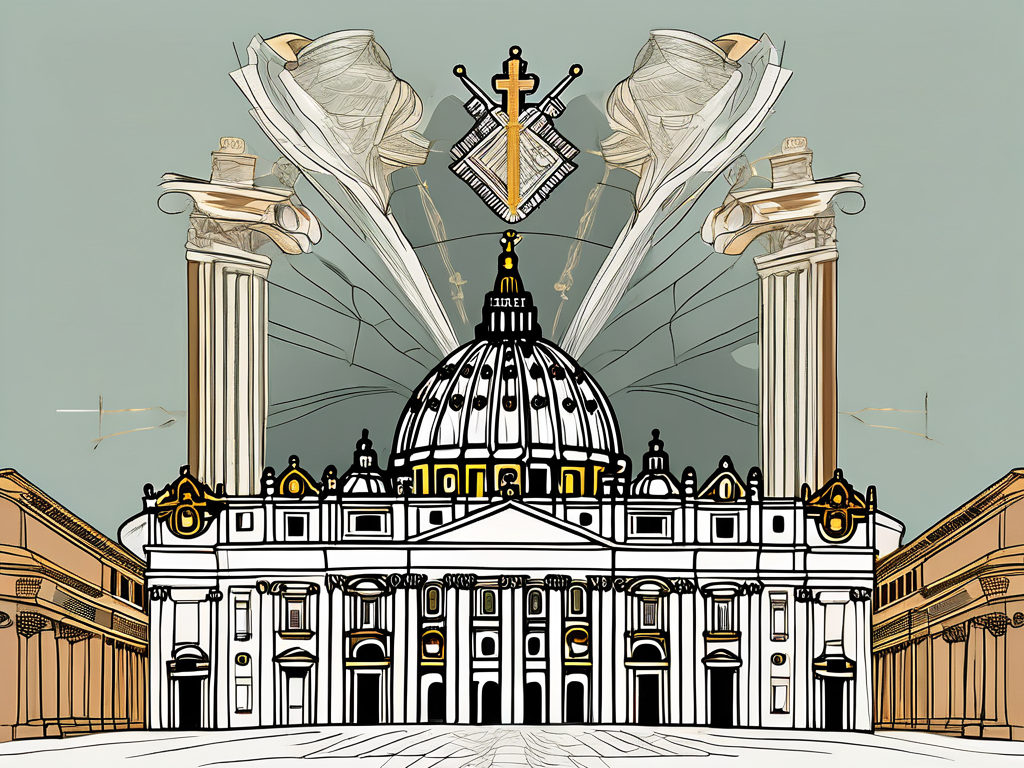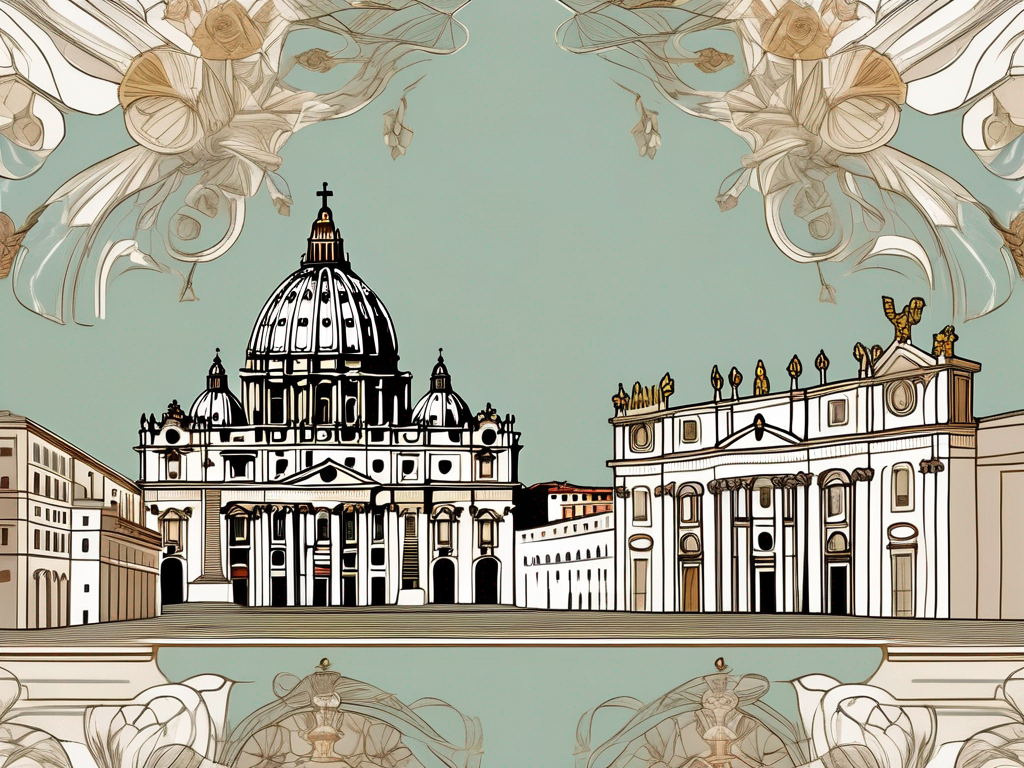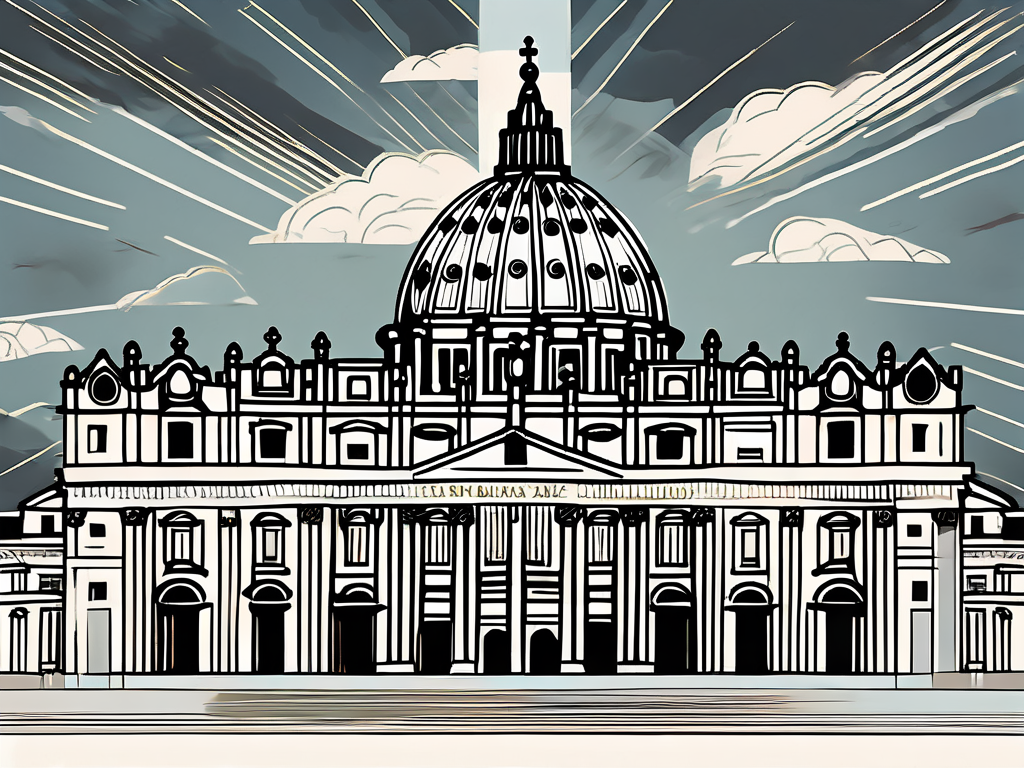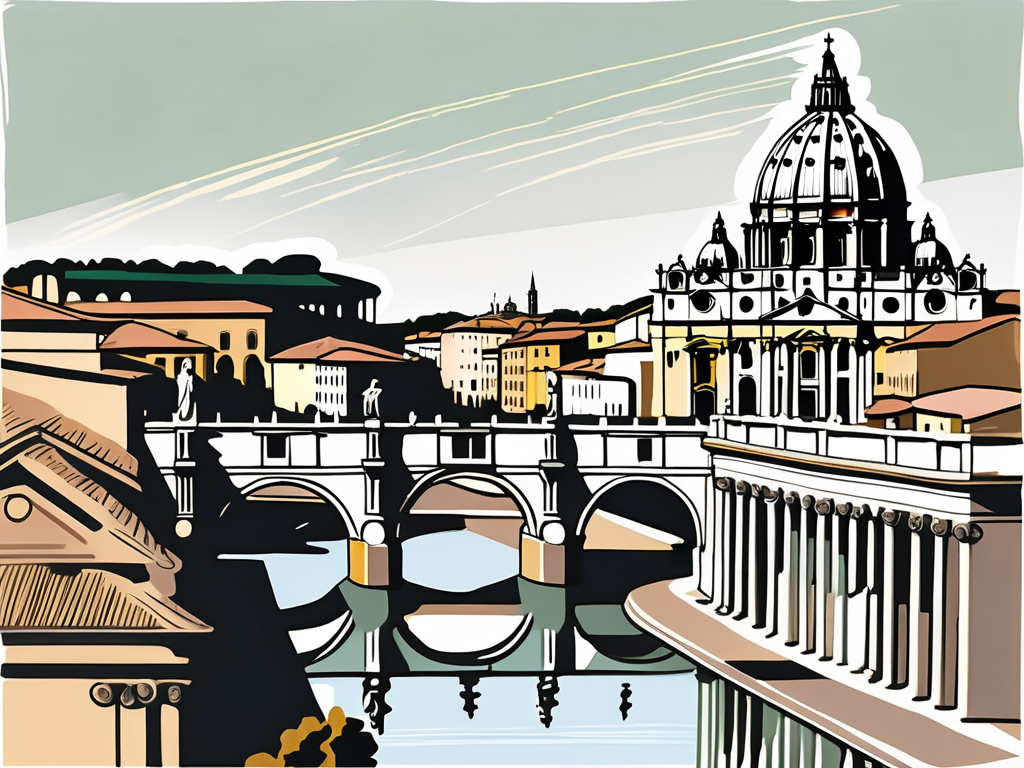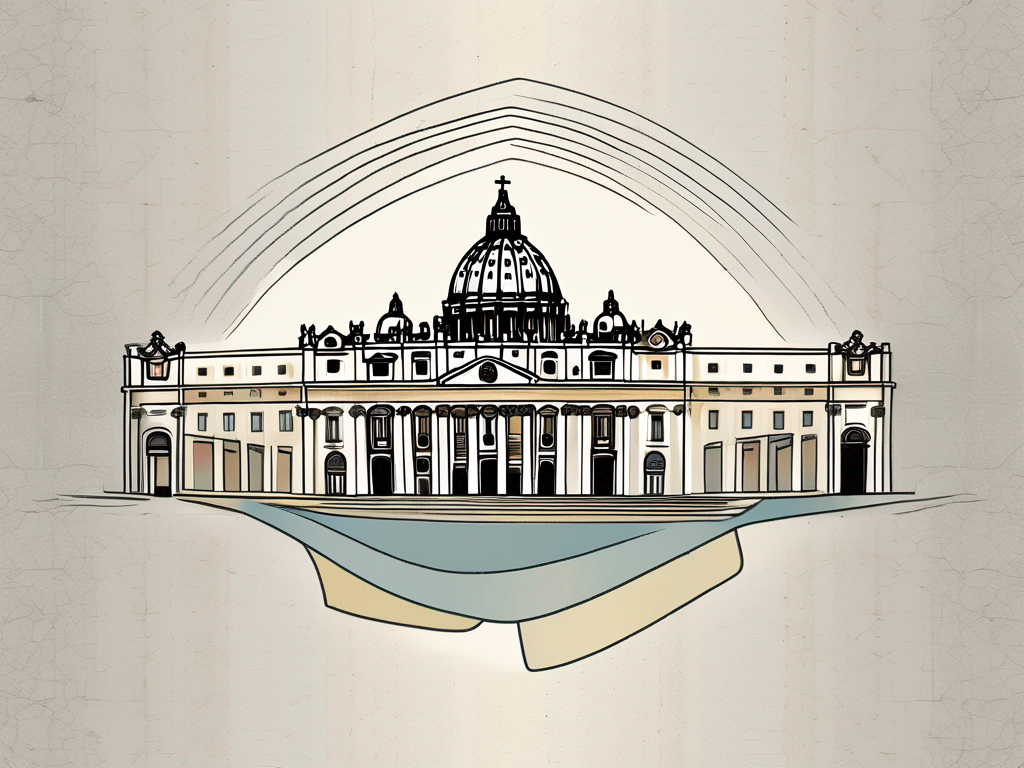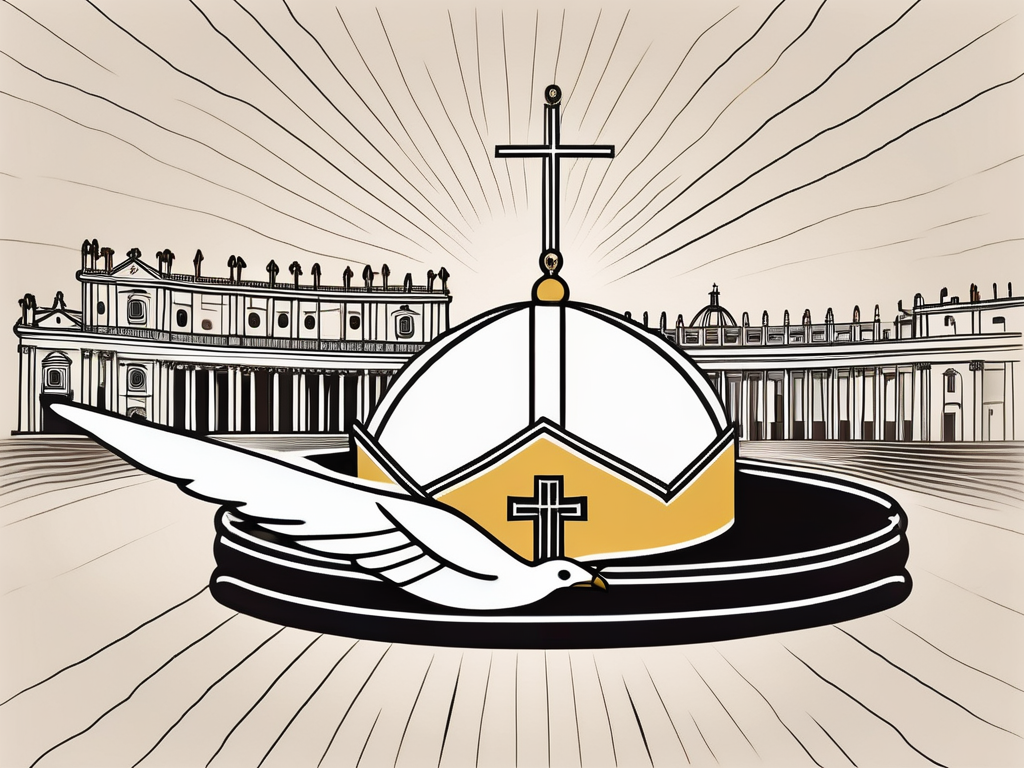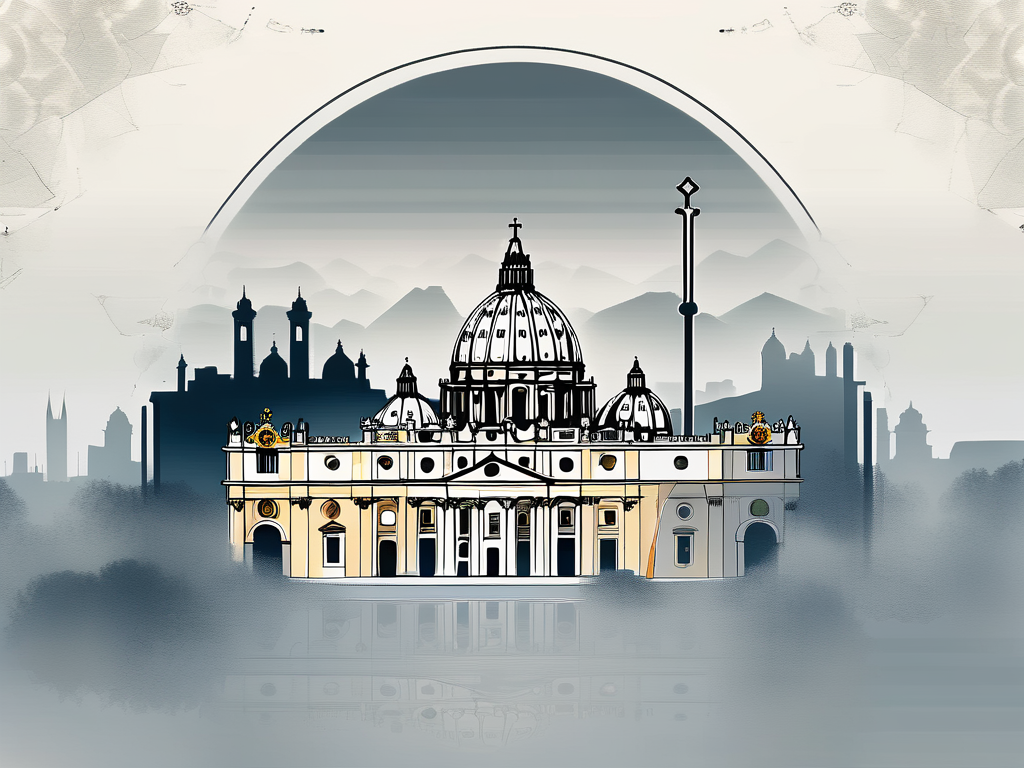Pope Urban VIII, born Maffeo Barberini, left an indelible mark on both the papacy and the world. His early life and education laid the foundation for his future greatness. Let’s delve into his fascinating journey and the enduring legacy he left behind.
Early Life and Education of Maffeo Barberini
Maffeo Barberini was born into an influential family in Florence, Italy, in 1568. His noble lineage boasted illustrious political and cultural connections, setting the stage for his future endeavors.
Surrounded by the vibrant Renaissance culture of his time, young Maffeo received an exceptional education. He devoured classical texts, nurturing a deep love for literature and philosophy that would shape his later years.
His thirst for knowledge was insatiable, and he sought out the guidance of renowned scholars and thinkers of the era. From the towering works of Plato and Aristotle to the poetic verses of Dante and Petrarch, Maffeo immersed himself in the rich tapestry of human thought and expression.
Yet, it was not just the academic sphere that influenced Maffeo. He also inherited a strong religious devotion from his family. From a tender age, he was exposed to the rituals and traditions of the Catholic Church, attending mass and participating in religious ceremonies.
His spiritual upbringing instilled in him a sense of reverence and awe for the divine, shaping his worldview and guiding his moral compass. As he delved deeper into his studies, Maffeo found himself grappling with questions of faith and reason, seeking to reconcile the teachings of the Church with the philosophical ideas he encountered.
It was during this formative period that Maffeo’s intellectual curiosity and religious fervor intertwined, laying the foundation for his future endeavors. He recognized the power of knowledge to illuminate the path of faith and sought to bridge the gap between the secular and the sacred.
As he matured, Maffeo’s reputation as a prodigious scholar grew, attracting the attention of influential figures in academia and politics. His sharp intellect and eloquent rhetoric earned him accolades and invitations to prestigious intellectual circles.
With each passing year, Maffeo’s passion for learning deepened, propelling him to explore new fields of study and engage in intellectual debates. He became a voracious reader, amassing an extensive library that housed a treasure trove of ancient and contemporary works.
His insatiable thirst for knowledge led him to travel extensively, seeking out renowned scholars and libraries across Europe. From the hallowed halls of Oxford to the bustling streets of Paris, Maffeo immersed himself in the intellectual currents of the time, forging connections and expanding his intellectual horizons.
Throughout his educational journey, Maffeo’s family provided unwavering support, recognizing his exceptional talents and nurturing his intellectual growth. They understood the transformative power of education and encouraged him to pursue his passions with unwavering dedication.
As Maffeo Barberini’s early years unfolded, it became evident that he was destined for greatness. His unique blend of intellectual prowess, religious devotion, and noble heritage set him on a trajectory that would shape the course of history.
Ascension to Papacy as Pope Urban VIII
Maffeo Barberini’s exceptional journey culminated in his election as Pope Urban VIII in 1623. His papal coronation marked the beginning of an era defined by important decisions and remarkable achievements.
But let us delve deeper into the fascinating story of Maffeo Barberini’s rise to power and the significant impact he had on the Catholic Church and the world.
Election and Papal Coronation
The election of Maffeo Barberini as Pope Urban VIII came at a critical juncture in the Catholic Church’s history. The Church was facing numerous challenges, both internally and externally, and needed a strong leader to guide it through these turbulent times.
Barberini, known for his intelligence, charisma, and deep devotion to the Church, was seen as the perfect candidate. His election was met with great anticipation and excitement, as people hoped for a new era of stability and progress under his leadership.
And so, on that momentous day, the papal coronation took place. The grandeur of the occasion was unparalleled, befitting the significance of the event. The air was filled with a sense of awe and reverence as Pope Urban VIII ascended to the throne, donning the papal tiara and assuming his new role as the spiritual leader of millions.
The ceremony itself was a spectacle to behold, with elaborate rituals and traditions that had been passed down through the ages. The sound of hymns and prayers reverberated throughout the grand halls of the Vatican, as the faithful gathered to witness this historic moment.
Key Decisions in the Early Years of His Papacy
Pope Urban VIII wasted no time in making critical decisions that would shape his legacy. He understood the challenges facing the Church and was determined to address them head-on.
One of his notable accomplishments during this period was his promotion of reforms within the Catholic clergy. Recognizing the need to weed out corruption and restore the Church’s moral authority, Pope Urban VIII implemented measures to ensure that the clergy adhered to the highest standards of integrity and piety.
Furthermore, Pope Urban VIII recognized the importance of engaging with the evolving political landscape. He understood that the Church’s influence extended beyond the spiritual realm and that it had a role to play in shaping the destiny of nations.
With his keen diplomatic skills, Pope Urban VIII fostered alliances and navigated delicate political negotiations, ensuring stability and promoting the Church’s interests. His ability to balance the demands of religion and politics earned him respect and admiration from both the faithful and secular leaders alike.
But Pope Urban VIII’s impact extended far beyond the confines of the Vatican. He was a patron of the arts and sciences, supporting and encouraging artists, architects, and scholars. His patronage led to the creation of magnificent works of art and the advancement of knowledge, leaving an indelible mark on the cultural landscape of his time.
As Pope Urban VIII’s papacy progressed, his influence continued to grow, and his legacy became firmly established. His unwavering commitment to the Church, his visionary leadership, and his dedication to the pursuit of truth and justice set him apart as one of the most significant popes in history.
Thus, Maffeo Barberini’s journey from humble beginnings to the papacy as Pope Urban VIII was not only a personal triumph but also a turning point in the history of the Catholic Church. His reign was characterized by bold decisions, remarkable achievements, and a lasting impact that would shape the Church and the world for centuries to come.
Contributions to Art and Architecture
Pope Urban VIII’s appreciation for art led to significant contributions that enriched the cultural landscape of Rome and beyond.
Patronage of Baroque Art
Under Pope Urban VIII’s patronage, the Baroque movement flourished. He commissioned renowned artists such as Bernini, who created breathtaking sculptures and architectural masterpieces that still marvel audiences today.
These artistic endeavors reflected the grandeur of the Catholic Church and allowed it to convey powerful spiritual messages through magnificent works of art.
Architectural Projects and Renovations
Pope Urban VIII’s passion for architecture was evident in his numerous construction projects. He oversaw the renovation of St. Peter’s Basilica, transforming it into the awe-inspiring structure admired today.
His commitment to architectural excellence extended beyond religious buildings. Pope Urban VIII also sought to enhance Rome’s cityscape, promoting urban development and leaving an enduring imprint on the Eternal City.
Political and Religious Policies
Pope Urban VIII’s reign was marked by important political and religious policies that shaped the course of history.
Involvement in the Thirty Years’ War
During the tumultuous period of the Thirty Years’ War, Pope Urban VIII skillfully maneuvered his role as a spiritual and political leader. He sought to protect Catholic interests and maintain the Church’s influence amidst the chaos.
While some criticize his stance for fueling conflict, others credit him with deftly navigating a treacherous landscape, safeguarding Catholic territories and preserving the Church’s integrity.
Stance on Galileo’s Theories
Pope Urban VIII found himself entangled in the controversy surrounding Galileo’s revolutionary theories. Initially supportive of Galileo’s work, the Pope later came to view it as a challenge to Church doctrine.
Galileo’s subsequent trial and condemnation strained the relationship between the Church and scientific progress. Nevertheless, Pope Urban VIII’s involvement in this historic event underscores the complexities of reconciling faith and scientific advancements.
Controversies and Criticisms
Like many historical figures, Pope Urban VIII was not without his share of controversies and criticisms.
Nepotism and the Barberini Family
One of the most significant criticisms leveled against Pope Urban VIII was his favoritism toward his family, known as the Barberini clan. This nepotism drew accusations of corruption and abuse of power, tarnishing his papacy.
Although the Barberini family enjoyed vast wealth and influence, their association with Pope Urban VIII has inevitably cast a shadow over his legacy.
The Wars of Castro
Pope Urban VIII’s involvement in the Wars of Castro, a conflict between papal and other Italian factions, drew criticism and scrutiny. The conflict resulted in immense destruction and strain on already-tense political relations, further marring his reputation.
Despite these controversies, Pope Urban VIII’s contributions to the Church and the world remain undeniably significant.
The Enduring Legacy of Pope Urban VIII
Pope Urban VIII’s impact continues to resonate centuries after his death. His support for the arts and architecture revitalized Rome’s cultural landscape, leaving behind timeless masterpieces.
Simultaneously, his political and religious policies shaped the Church’s role in a changing world, influencing the course of history. Though not without flaws, Pope Urban VIII’s remarkable journey and complex legacy ensure his place in the annals of Papal history.
